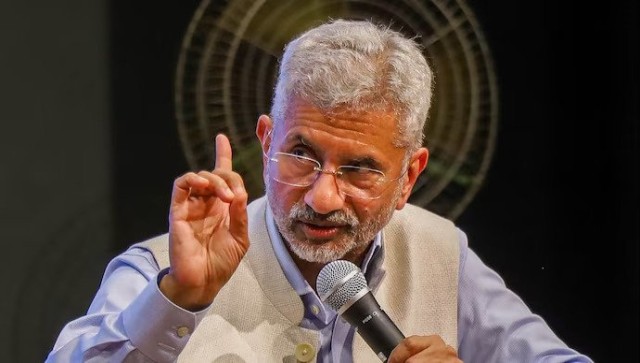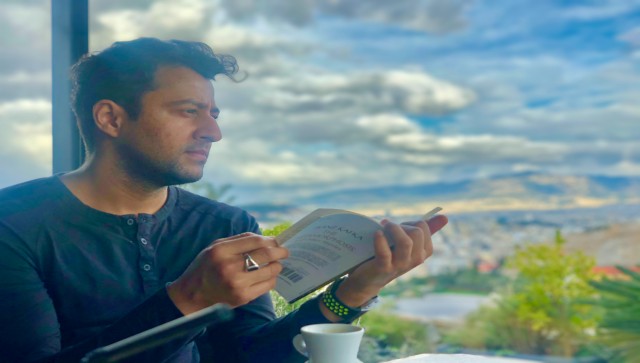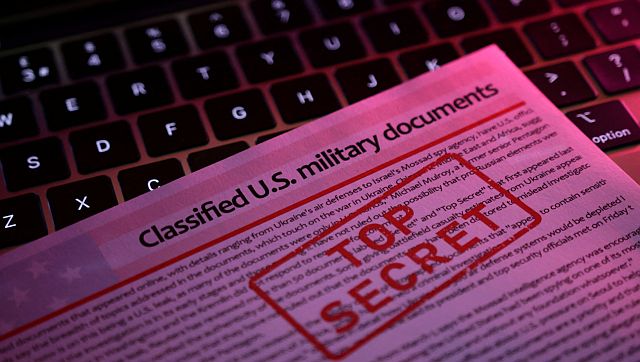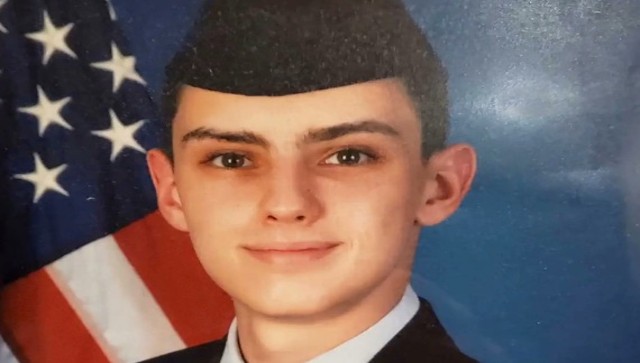Before you even open this book — Things That Can and Cannot Be Said — you already have some expectations.
I mean, the book has Edward Snowden (he of the NSA whistle-blowing fame) with Arundhati Roy (she who called herself a mobile republic) and Daniel Ellsberg (he of the Pentagon papers whistle-blowing fame) and then there’s John Cusack (he of Con Air, Serendipity, American Sweethearts and more). All four are beaming at you on the back cover. If you have already read the Guardian article by Roy, then you are salivating at the prospect of what must have been said at the Moscow Un-Summit.
Let me just burst your bubble right there. The conversations with Edward Snowden, had over a period of two days, are as Roy had mentioned in her Guardian article — off the record.
Having seen the Citizen Four documentary, read The Untold Story in Wired, even watched John Oliver quizzing Snowden about passwords and ‘dick pics’, I was really looking forward to exploring more aspects about his personality. Things such as what is he up to after that fateful day in June 2013 when shit just hit the roof at all the US intel agencies? What are his sentiments about his abandoned home and his adopted home? Does he feel it was all in vain?
This book is not about Snowden’s monologues per se. It is more of a series of conversations between Roy and Cusack over many years; Cusack’s realisation of the idea of getting Snowden, Roy and Ellsberg in the same room; Roy’s essays; Cusack’s essays and more. Snowden makes an appearance only in the second half of the book — which can easily be finished off in a day.
Arundhati Roy in a starring role
Roy’s calibre is already well established, thanks to her anti-establishment writings. But when I first read about John Cusack getting this bunch of people together, I was curious as to why a Hollywood actor is orchestrating things here. Cusack explains those motivations in the book. Freedom of the Press Foundation is the connecting thread between the four.
The conversations, recorded over a considerable period of time, open up a whole bunch of issues. Roy makes clear her objections about Snowden cradling the US flag in the Wired profile, but then counters that by saying that she likes that there have been cases of conscientious defectors within the US armed forces, which is unthinkable in India. Roy establishes her political differences with Daniel Ellsberg (who outed the Pentagon Papers in the ’60s) as well as the irony of Snowden being holed up in Russia, which has a terrible record when it comes to free speech. Roy also raises questions about NGOs on the payroll of rich foundations, and how it ultimately makes them susceptible to be manipulated at some future level. In the conversations, Cusack smartly lets Roy get in her flow.
These conversations are interspersed with essays by Roy herself where she does what she does best — take on the establishment and raise at times pertinent, at times impractical questions. She touches upon varied topics such as human rights, ethics surrounding NGOs getting funds, the hapless situation of the Adivasis living in the interiors of the country, growing up in Communist Kerala, the ruling party, Julian Assange, free market economy and its victims, the idea of justice and more.
Cusack triggers Roy to share some interesting anecdotes, such as the one about interacting with a cop in a Naxal area. According to this cop, as long as the tribals don’t understand greed, things will remain the same. He tells Roy that force should be replaced by TVs in their houses. That according to him will solve a lot of issues. Quirky solution, I know, but just demonstrates the power of the idiot box.
The Snowden meeting
While there isn’t an in-depth Snowden conversation in the book, Roy does let in on some aspects of their discussions. Such as the fact that he was under the impression that Roy was out to radicalise him, and that he fell for propaganda when he signed up for the Iraq War in 2011. Snowden ponders that all it needs is a second 9/11 to turn the US into a police state and see a lot more detentions and discrimination against people who are non-white. He paints a picture of an Orwellian surveillance state where the state will have every single detail about you and your habits and when push comes to shove, the data will already be with the state. It will just be a matter of how soon the plans set in place are executed.
Takeaways
Cusack, Roy and Ellsberg raise a lot of questions without providing any solution as such. Some of the topics being discussed could easily make up another book — a franchise if you will. The free wheeling conversations between all the participants will bring up many Eureka moments for a lot of readers. Insights that can only be gained if you are researching these topics in exhausting detail. Ellsberg’s reminiscence of the Cold War days where the world was on the brink of a nuclear war is particularly terrifying.
The layout of the book is quite refreshing with grainy black and white photographs accompanying some chapters. Which just makes it equally saddening that the Snowden conversations have not got any play in the book. The conversation-essay (format) breaks the monotony, and you could as well start non-linearly and still have a grip on the book.
Ellsberg’s reflection towards the end about the state of his country (which may as well be true of India) is particularly poignant. “That the best thing that the best people in our country like Ed can do, is go to prison…or be an exile in Russia? This is what it’s come to in my country…it’s horrible you know”.
The state of whistle-blowers in India, is similarly grim.


)




)
)
)
)
)
)
)
)